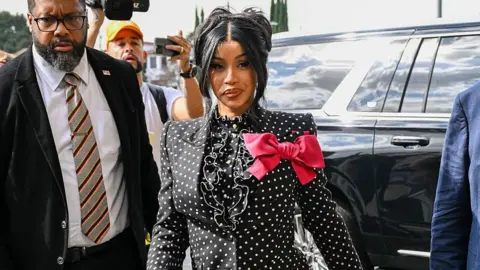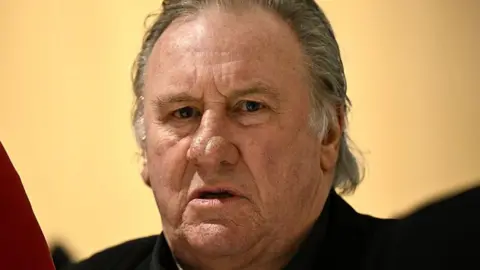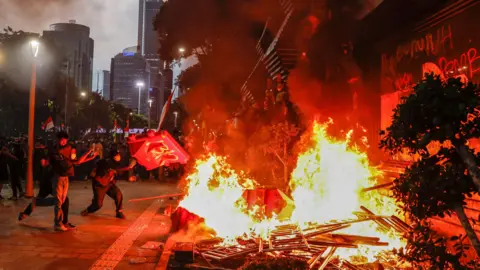The sexual assault trial involving five former members of Canada's national junior hockey team is drawing to a conclusion as a verdict is expected on Thursday morning. The case, stirring national discourse, revolves around allegations that the players assaulted a 20-year-old woman during a 2018 Hockey Canada gala at a hotel in London, Ontario. The accused, who have all pleaded not guilty, face allegations that hinge on the intricacies of consent in sexual encounters.
The complainant, referred to in media as EM due to a publication ban, contends that her initial consensual encounter with one of the players quickly escalated into a group assault when additional teammates entered the hotel room. This trial has not only shed light on the specifics of the incident but has also produced a broader examination of the workplace culture prevalent in Canadian hockey.
Justice Maria Carroccia is expected to deliver her verdict in a London courtroom, concluding a trial that has included extensive witness testimony and evidence. The case has garnered widespread media attention, particularly as it coincided with heightened scrutiny of Hockey Canada following revelations of a prior settlement with the victim and systemic issues within the organization.
The proceedings have prompted discussions about consent in sexual violence cases, with a focus on whether each sexual act was consensual or coerced, and have reflected on the conduct of the accused athletes during and after the incident. EM's testimony has included troubling details of her experience during the aftermath of that night, and there have been contrasting depictions from the defense, who argue that the complainant actively sought the players' attention to create a lively atmosphere.
The trial has encountered multiple disruptions, including a mistrial declaration and jury dismissals, forcing the judge to proceed without a jury. This shift underscores both the complex legal dynamics and the impairments brought about by the alleged misconduct of defense counsel toward jurors.
Public attention has largely focused on the implications of this case within the sports community, especially as it could redefine public perceptions of sexual consent in Canada and the treatment of victims in similar trials. The outcome may influence not just the lives of the five accused but also the landscape of hockey culture in Canada, potentially reshaping the organization's policies moving forward. NHL Commissioner Gary Bettman has refrained from commenting on the players' futures in the league pending the impending decision.
As the verdict looms, many will be closely watching the courtroom to see how this prominent case unfolds, recognizing its lasting impact on both Hockey Canada and the broader societal conversations regarding sexual assault.
The complainant, referred to in media as EM due to a publication ban, contends that her initial consensual encounter with one of the players quickly escalated into a group assault when additional teammates entered the hotel room. This trial has not only shed light on the specifics of the incident but has also produced a broader examination of the workplace culture prevalent in Canadian hockey.
Justice Maria Carroccia is expected to deliver her verdict in a London courtroom, concluding a trial that has included extensive witness testimony and evidence. The case has garnered widespread media attention, particularly as it coincided with heightened scrutiny of Hockey Canada following revelations of a prior settlement with the victim and systemic issues within the organization.
The proceedings have prompted discussions about consent in sexual violence cases, with a focus on whether each sexual act was consensual or coerced, and have reflected on the conduct of the accused athletes during and after the incident. EM's testimony has included troubling details of her experience during the aftermath of that night, and there have been contrasting depictions from the defense, who argue that the complainant actively sought the players' attention to create a lively atmosphere.
The trial has encountered multiple disruptions, including a mistrial declaration and jury dismissals, forcing the judge to proceed without a jury. This shift underscores both the complex legal dynamics and the impairments brought about by the alleged misconduct of defense counsel toward jurors.
Public attention has largely focused on the implications of this case within the sports community, especially as it could redefine public perceptions of sexual consent in Canada and the treatment of victims in similar trials. The outcome may influence not just the lives of the five accused but also the landscape of hockey culture in Canada, potentially reshaping the organization's policies moving forward. NHL Commissioner Gary Bettman has refrained from commenting on the players' futures in the league pending the impending decision.
As the verdict looms, many will be closely watching the courtroom to see how this prominent case unfolds, recognizing its lasting impact on both Hockey Canada and the broader societal conversations regarding sexual assault.






















